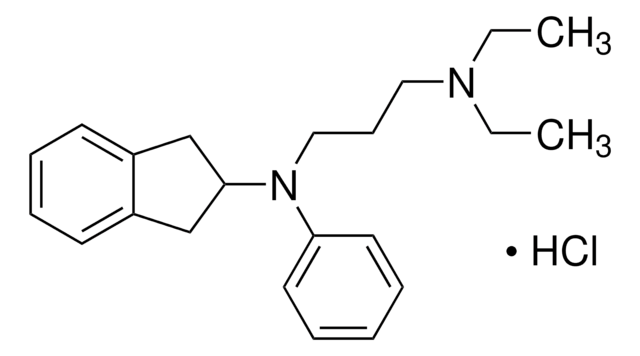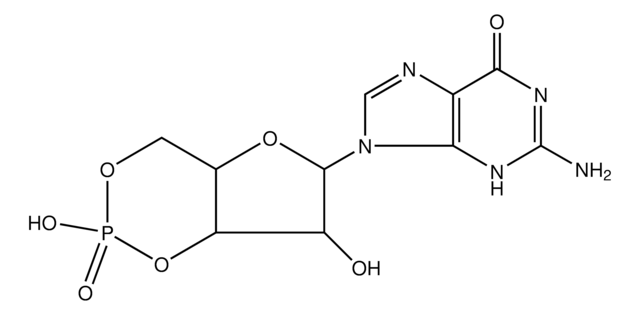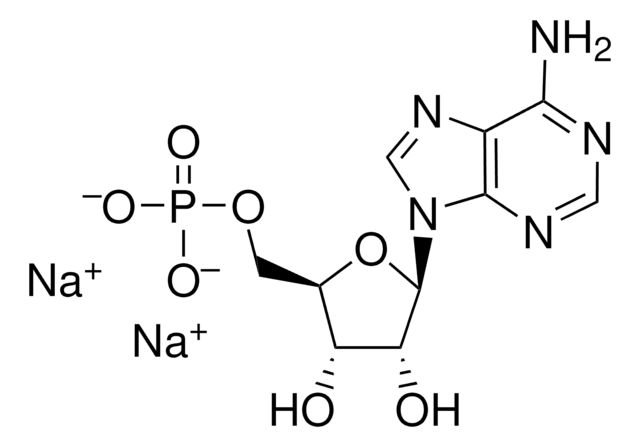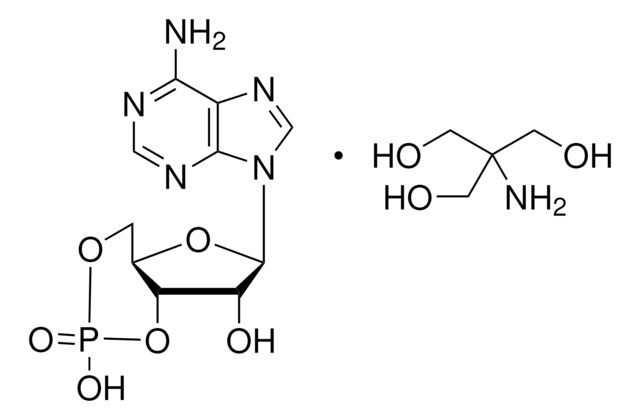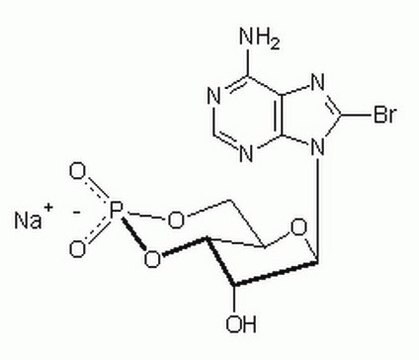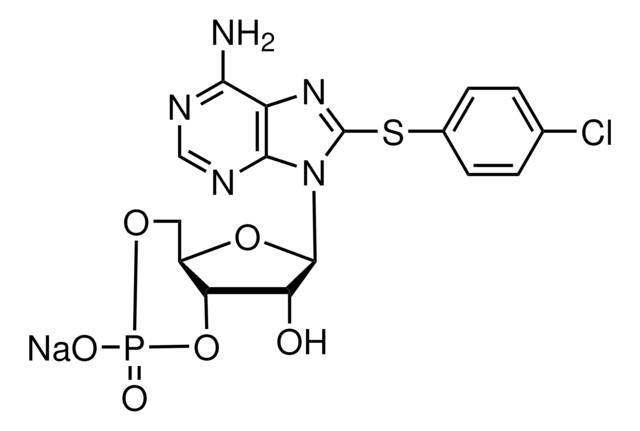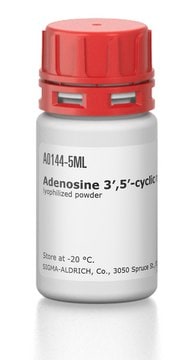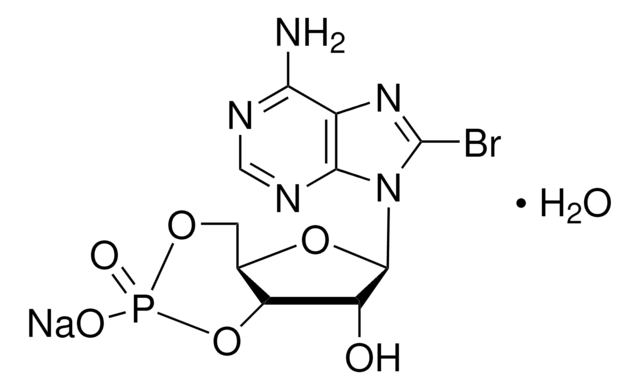A9501
Adenosine 3′,5′-cyclic monophosphate
≥98.5% (HPLC), powder, PKA activator
Synonym(s):
3′,5′-Cyclic AMP, Adenosine 3′,5′-cyclophosphate, cAMP
About This Item
Recommended Products
product name
Adenosine 3′,5′-cyclic monophosphate, ≥98.5% (HPLC), powder
Quality Level
Assay
≥98.5% (HPLC)
form
powder
color
white
mp
260 °C (dec.) (lit.)
solubility
H2O: 10 mg/mL, clear, colorless (pH of aqueous solution is approx. 3.0. The sodium salt (A6885) is about 20× more soluble.)
storage temp.
−20°C
SMILES string
Nc1ncnc2n(cnc12)[C@@H]3O[C@@H]4COP(O)(=O)O[C@H]4[C@H]3O
InChI
1S/C10H12N5O6P/c11-8-5-9(13-2-12-8)15(3-14-5)10-6(16)7-4(20-10)1-19-22(17,18)21-7/h2-4,6-7,10,16H,1H2,(H,17,18)(H2,11,12,13)/t4-,6-,7-,10-/m1/s1
InChI key
IVOMOUWHDPKRLL-KQYNXXCUSA-N
Gene Information
human ... OPRK1(4986)
Looking for similar products? Visit Product Comparison Guide
Application
- as cell culture medium supplement in embryonic spinal neurons
- as a component of ringer solution for perfusion studies
- to induce neuroendocrine differentiation in human lung cancer cell lines
Biochem/physiol Actions
Features and Benefits
Storage Class Code
11 - Combustible Solids
WGK
WGK 3
Flash Point(F)
Not applicable
Flash Point(C)
Not applicable
Personal Protective Equipment
Certificates of Analysis (COA)
Search for Certificates of Analysis (COA) by entering the products Lot/Batch Number. Lot and Batch Numbers can be found on a product’s label following the words ‘Lot’ or ‘Batch’.
Already Own This Product?
Find documentation for the products that you have recently purchased in the Document Library.
Customers Also Viewed
Articles
Cyclic nucleotides like cAMP modulate cell function via PKA activation and ion channels.
Discover Bioactive Small Molecules for ADME/Tox
Our team of scientists has experience in all areas of research including Life Science, Material Science, Chemical Synthesis, Chromatography, Analytical and many others.
Contact Technical Service

